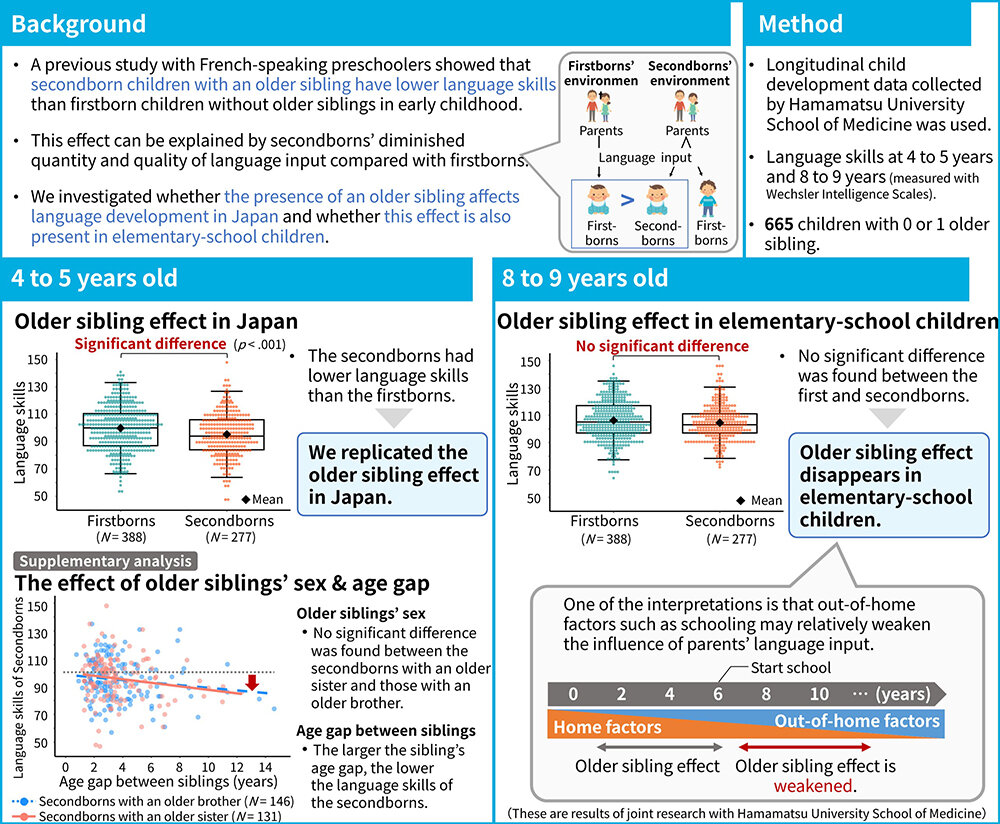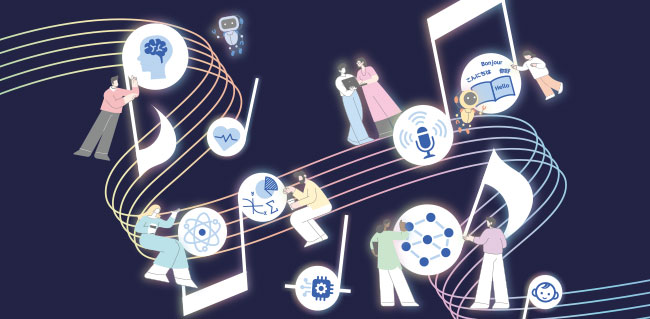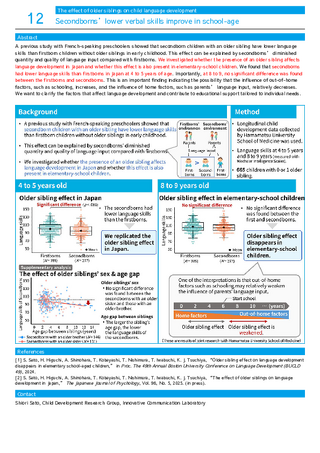| 12 |
Secondborns’lower verbal skills improve in school-ageThe effect of older siblings on child language development 
|
|---|
A previous study with French-speaking preschoolers showed that secondborn children with an older sibling have lower language skills than firstborn children without older siblings in early childhood. This effect can be explained by secondborns’ diminished quantity and quality of language input compared with firstborns. We investigated whether the presence of an older sibling affects language development in Japan and whether this effect is also present in elementary-school children. We found that secondborns had lower language skills than firstborns in Japan at 4 to 5 years of age. Importantly, at 8 to 9, no significant difference was found between the firstborns and secondborns. This is an important finding indicating the possibility that the influence of out-of-home factors, such as schooling, increases, and the influence of home factors, such as parents’ language input, relatively decreases. We want to clarify the factors that affect language development and contribute to educational support tailored to individual needs.

[1] S. Sato, H. Higuchi, A. Shinohara, T. Kobayashi, T. Nishimura, T. Iwabuchi, K. J. Tsuchiya, “Older sibling effect on language development disappears in elementary school-aged children,” in Proc. The 49th Annual Boston University Conference on Language Development (BUCLD 49), 2024.
[2] S. Sato, H. Higuchi, A. Shinohara, T. Kobayashi, T. Nishimura, T. Iwabuchi, K. J. Tsuchiya, “The effect of older siblings on language development in Japan,” The Japanese Journal of Psychology, Vol. 96, No. 5, 2025. (in press).
Shiori Sato, Child Development Research Group, Innovative Communication Laboratory




